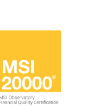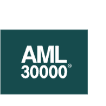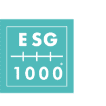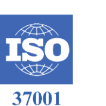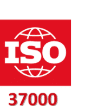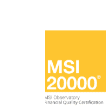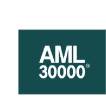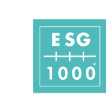
IGSF - International Group For Sustainable Finance, is a global organization for financial and non-financial standardization based in Luxembourg.
IGSF is a non-profit organization (NGO) whose activities aim to channel and organize international financial and non-financial standardization efforts. Through a structured approach alongside international experts, IGSF acts as an independent organization for standardizing and disseminating financial standards. With its ramifications, IGSF collects and centralizes international data and regulations related to financial and non-financial compliance for a better operational data utilization, processing, and standardization.
IGSF, as a standardization entity, primarily works on two aspects: the technical organization of standards in financial and non-financial governance and the dissemination of standards and best practices in general. The topics covered within IGSF include issues related to financial governance, fight against financial crime, and corporate social responsibility for companies or organizations of all types.
IGSF is positioned within the categories of certifiable and non-certifiable standards, including ISO, MSI, AML, ESG, and IFRS.
The ongoing transformation of economic and financial systems has seen a significant intensification in recent years due to successive crises that have reshaped the global landscape, its codes, and its practices. These crises have been marked by their intensity and regularity.
Globalization plays a significant role in this context at all levels and affects all industries, regardless of their sectors. This phenomenon of globalization constitutes a strength in terms of its contributions to society, but it can also become a weakness due to the interconnectivity of global actors. At the same time, the process of globalization is accompanied by the construction of an increasing number of economic and financial actors whose continuous growth worldwide encourages a need for structuring.
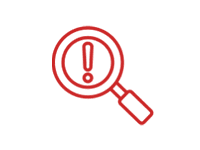

The establishment of benchmarks and differentiation indices for operators, along with control rules for better supervision and regulation, directly leads to improved risk management in identifying trusted operators. The International Organization for Standardization (ISO) took the lead in this transformation in the aftermath of World War II (1947), and other international organizations have lent their support, contributing to this collective effort. IGSF is among these organizations, with its primary mission being the structuring and dissemination of good financial and non-financial practices, contributing to providing reliable and independent indicators to the markets. Compliance with these indicators, therefore, addresses the dual issue of differentiation and control.
The IGSF is one of these organizations, with the primary aim of structuring and disseminating good financial and extra-financial practices, contributing to the provision of reliable and independent indicators to the markets. Compliance with these indicators therefore makes it possible to respond to the double problem of differentiation and control.
IGSF also carries the mission of bridging and strengthening relationships among stakeholders within an ecosystem, providing clear and concrete answers to the major concerns of economic actors regarding their ability to:
- Support a collaboration choice,
- Structure a management system.





In a complex, ever-evolving world where challenges are constant, IGSF advocates compliance with international standards of good governance to adapt to changes and address the challenges of tomorrow. Thus, through its activities, IGSF aims for several strategic objectives:
- Promote a culture of ethics, rigour, and transparency,
- Facilitate the interoperability of economic actors through specific methodologies,
- Contribute directly to the research and development of new decision support tools to address current and future issues in financial and non-financial compliance.

